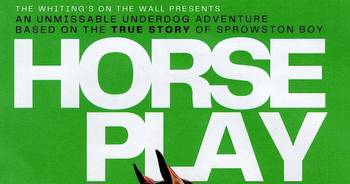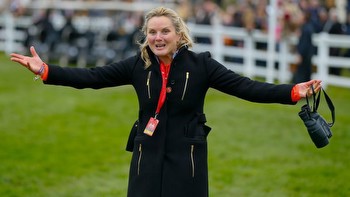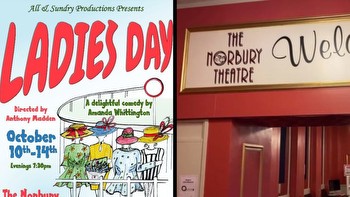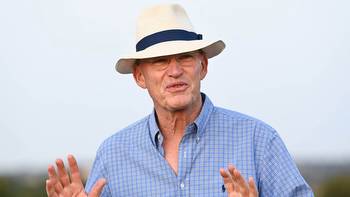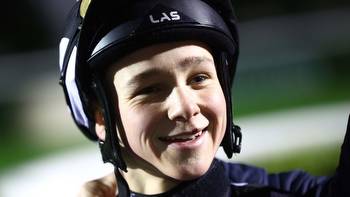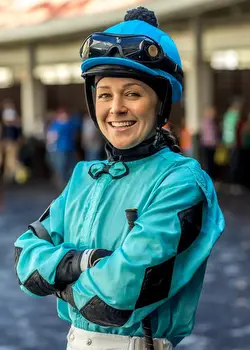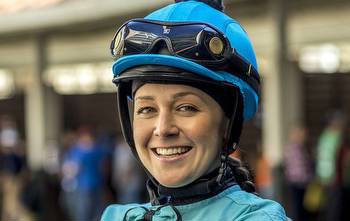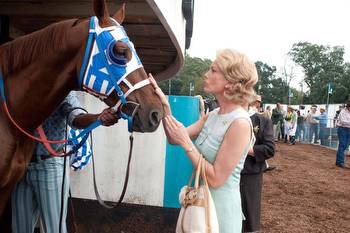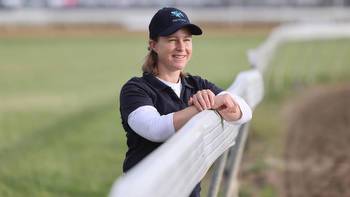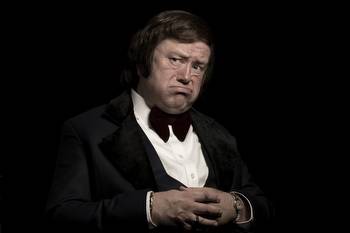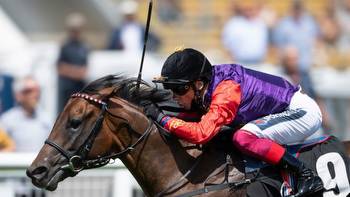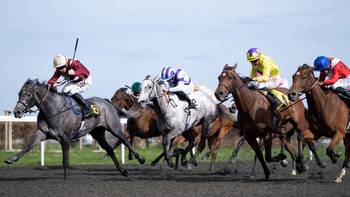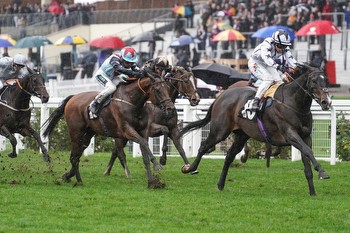Play tells story of the first ever Royal Ascot win by a female jockey
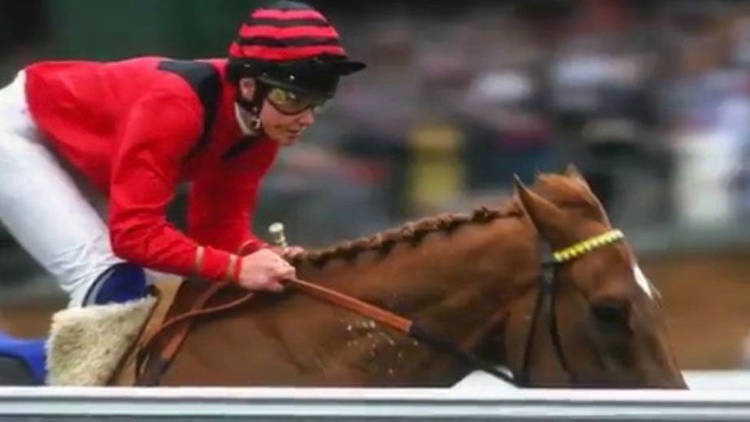
The first woman jockey to win a race at Royal Ascot has described the attitudes at the time as being "like the Dark Ages".
Gay Kelleway, 59, won the Queen Alexandra Stakes in 1987, riding Sprowston Boy, owned by Geoff Whiting and Kenny Blanch from Norwich.
A play about the historic win has been written by Mr Whiting's granddaughter.
Ms Kelleway said: "I was totally not wanted - racing was a man's world and I heard that all the time."
Sprowston Boy was eventually retired to
There was a second unusual aspect to the win - the horse's owners "were working class guys who grew up on the same road" in Sprowston, near Norwich, said playwright and actor Katie-anna Whiting.
Mr Whiting was a salesman who had always dreamed of owning a horse - he even ran away to be a stable boy until his parents brought him home for a "proper job" - while Mr Blanch was a sixth-generation coal salesman.
Ms Whiting knew about the family success story because her grandad had pictures of it but she was not aware of Ms Kelleway's significance until she saw her talking on TV about sexism in the racing industry.
"I didn't realise Gay had been the first woman to win Ascot and I didn't realise that the first woman to win at Ascot had won on my grandad's horse," she said.
"And she remained the only female jockey to win in 32 years."
It was not until 2019 that Hayley Turner partnered the aptly-named Thanks Be to a narrow victory in the Sandringham Stakes.
Ms Kelleway, a racehorse trainer at Exning, Suffolk, said: "I just wanted to prove that I was as good as any fellow rider apprentice of my age but I did have to train that much harder, no late nights, no partying - really, truly, there was no room for error."
Attitudes towards her from fellow jockeys, stewards, trainers and owners "were like the Dark Ages", she added.
"There was one time at the Leicester race course when I was by myself in the ladies' changing room, and I think the other jockeys had egged one of the lads to have a go at me," she said.
"He had me pinned up against the wall and I only escaped because I kneed him in the groin."
The play will show the tough challenges Ms Kelleway faced in the 1980s - which at times made her feel suicidal - but how her love for horses "kept me going".
Ms Whiting, 39, set up a theatre company in Norwich to "tell Norfolk stories about Norfolk people" after returning to her home town three years ago.
With the backing of Ms Kelleway, The Garage theatre, Norwich, and the National Horse Racing Museum in Newmarket, she secured Arts Council funding to create a play about the Sprowston Boy story.
Ms Whiting said: "It covers the sexism and classism they had to face at the time and almost everyone was rude about Sprowston Boy as well, they said he didn't look like a thoroughbred."
Sprowston Boy and Ms Kelleway romped home by eight lengths. When the horse was eventually retired he was stabled in Felmingham, Norfolk, where Mr Whiting would visit him every day.
"It's a real underdog success story. And it's true," Ms Whiting added.

